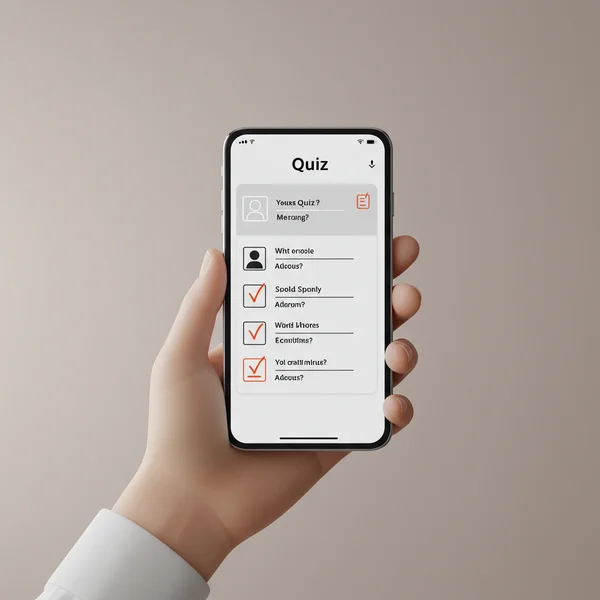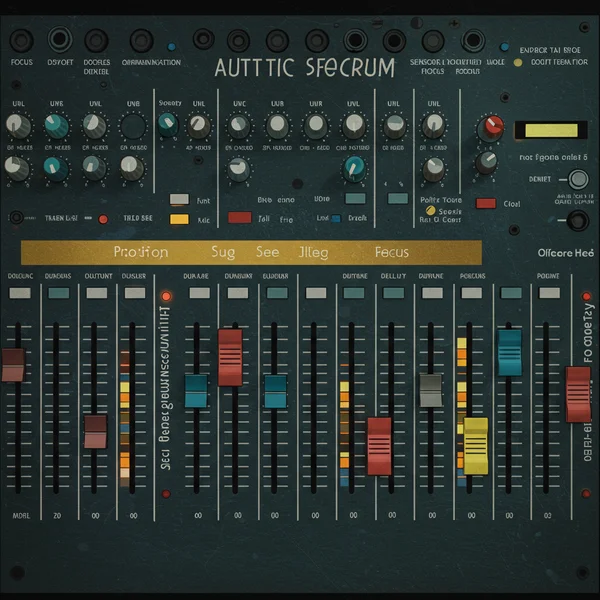Understanding Autism & Your Autistic Quiz Journey: Beyond Myths
August 4, 2025 | By Phoebe Harrington
Are you grappling with questions about what autism truly is? In a world filled with misconceptions and stereotypes, understanding Autism Spectrum Disorder (ASD) can feel like navigating a maze. You might be feeling confused, different, or simply curious about why your brain seems to work in its own unique way. This guide aims to cut through the confusion, debunk common myths, and shed light on what neurodiversity truly means. It's about finding accurate self-understanding, a journey that can begin with a simple, insightful first step. If you're wondering about your own traits, taking an autistic quiz can be an empowering place to start.
So, what is an autistic quiz? It's a screening tool designed to help you explore traits often associated with autism. On our platform, we offer scientifically-backed assessments that provide a confidential, private look into your personal neurotype. This article will serve as your map, and when you're ready, you can start your autistic quiz with our tool.

What is Autism Spectrum Disorder (ASD)?
Let's be clear from the start: Autism Spectrum Disorder isn't an illness or a disease. It is a neurodevelopmental condition, meaning it affects how the brain develops and processes information, according to authoritative health organizations like the CDC. This results in different ways of experiencing the world, communicating, interacting with others, and learning. It's a fundamental part of a person's identity.
The term "spectrum" is crucial. It signifies that autism presents with a vast range of characteristics and support needs. There is no single "autistic experience." Instead, each autistic person has a unique profile of strengths and challenges, a concept beautifully summarized by the saying, "If you've met one autistic person, you've met one autistic person."
Core Characteristics of Autism
While every individual is different, autism is generally characterized by a combination of traits. You might recognize some of these in your own experience:
- Unique Social Processing: You might find navigating social cues and unwritten rules confusing or exhausting. Small talk can feel unnatural, while deep conversations on topics you're passionate about are energizing.
- Intense Focus (Special Interests): Autistic people often have deep, passionate interests in specific subjects. This focus allows for an incredible depth of knowledge and skill in those areas.
- Sensory Differences: You may experience heightened or lowered sensitivity to sounds, lights, textures, tastes, or smells. A bustling mall might feel overwhelming, while a soft blanket provides immense comfort.
- Need for Routine: Predictability can be very comforting. Having a consistent routine helps manage an otherwise unpredictable world and can reduce anxiety.
The Concept of a "Spectrum" Explained
Thinking of the autism spectrum as a simple line from "not autistic" to "very autistic" is a common mistake. A more accurate model is to imagine a sound mixing board, with different sliders for various traits like social communication, sensory sensitivity, executive functioning, and pattern recognition.

Every autistic person has their own unique combination of settings on this board. One individual might be highly verbal but struggle greatly with sensory overload, while another may be non-speaking but have exceptional pattern recognition skills. Understanding this diversity is key to appreciating the true nature of the autism spectrum disorder quiz and its results. It’s not about a single score but about understanding a personal profile of traits.
Debunking Common Autism Myths & Stereotypes
Misinformation about autism is widespread and can be incredibly harmful. It creates stigma and prevents people from seeking understanding or a diagnosis. Let's clear the air by tackling some of the most persistent myths.
Myth vs. Reality: Autism isn't a "Disease"
Autism is not something to be "cured" or "fixed." It is a neurotype—a natural variation in the human brain. The neurodiversity movement advocates for viewing autism as a difference to be understood and accommodated, not a deficit to be eliminated. This perspective shifts the focus from "treatment" to support, acceptance, and empowerment. An autistic test quiz is not a diagnostic tool for a disease; it's an informational guide for self-discovery.
Autistic People Do Experience & Express Empathy Differently
One of the most damaging stereotypes is that autistic people lack empathy. This is false. Many autistic individuals feel empathy very deeply—sometimes to an overwhelming degree. The difference often lies in how empathy is processed and expressed.
An autistic person might struggle with "cognitive empathy" (intellectually guessing what someone is thinking or feeling based on social cues) but have profound "affective empathy" (feeling another person's emotions alongside them). Instead of offering a conventional comforting phrase, they might show they care by helping to solve the problem or sharing a related experience. Exploring these nuances is part of what an autistic traits quiz can help clarify.
Autism in Girls and Women: Often Missed, Rarely Diagnosed
For decades, autism research focused primarily on boys, leading to a diagnostic model that often overlooks how traits present in girls and women. Many autistic females learn from a young age to "mask" or "camouflage" their traits to fit in. This involves consciously mimicking the social behaviors of non-autistic peers, forcing eye contact, and suppressing natural behaviors like stimming (repetitive movements).

This constant performance is mentally and emotionally exhausting and is a major contributor to autistic burnout. Because they are so skilled at masking, many women go undiagnosed until adulthood, after years of feeling like something is wrong with them. An am i autistic quiz female can be a particularly vital tool, as tests like the scientifically-backed Camouflaging Autistic Traits Questionnaire (CAT-Q) used on our site are specifically designed to help identify camouflaging behaviors.
Embracing Neurodiversity and Autistic Strengths
Shifting our perspective from a deficit-based model to one of neurodiversity allows us to see the incredible strengths that can accompany an autistic neurotype. The world needs all kinds of minds to thrive.
Unique Strengths and Perspectives of Autistic Minds
While challenges are real, many autistic strengths are highly valuable. These can include:
- Exceptional Honesty and Loyalty: A direct communication style and a strong sense of justice.
- Deep Focus and Expertise: The ability to concentrate intensely on subjects of interest, leading to expert-level knowledge.
- Logical and Analytical Thinking: A talent for seeing patterns, details, and logical inconsistencies that others might miss.
- Unique Creativity: Approaching problems from unconventional angles, leading to innovative solutions.

Understanding your potential strengths is just as important as identifying your challenges. An AI-powered report from an autistic adult quiz can provide personalized insights into both.
Fostering a More Inclusive Understanding
Embracing neurodiversity means creating environments where different ways of thinking and being are not just tolerated but valued. It means choosing curiosity over judgment and providing accommodations that allow everyone to thrive. It starts with individual understanding—a journey you can start today.
Your Journey Towards Self-Understanding: What Comes Next?
Understanding autism is about moving past stereotypes and recognizing it as a complex and varied human experience. It's about seeing the person, not a label. For many, this journey begins with a private moment of reflection, a search for answers that finally make sense of a lifetime of experiences.
If this article resonates with you, the next step is yours to take. An online screening tool is a low-pressure, confidential way to explore your traits further. Our scientifically-backed questionnaires are designed to provide you with insights, not a diagnosis. They are a starting point for a deeper conversation with yourself, and potentially, with a trusted professional.
Ready to explore what makes you uniquely you? Take our free autistic quiz today and receive an instant report. It could be the first step to unlocking a new chapter of self-acceptance and understanding.
Frequently Asked Questions About Autism & Online Quizzes
Am I autistic?
This is a question only a qualified healthcare professional can definitively answer. However, if you find yourself relating to many autistic traits—like social exhaustion, deep interests, and sensory sensitivities—an online screening tool can be a valuable first step. It can help you organize your thoughts and decide if seeking a formal assessment is right for you.
What are the signs of autism in adults/women?
In adults, especially women, signs can be subtle due to masking. They may include chronic social fatigue (an "introvert hangover"), a small circle of intense friendships, feeling like you're "acting" in social situations, a strong need for alone time to recharge, and intense distress when routines are disrupted. An autistic masking quiz can help identify these hidden traits.
What is an autistic quiz?
An autistic quiz is a questionnaire designed to measure the presence and intensity of traits commonly associated with autism. Reputable quizzes, like the CATQ and AQ-Test offered on our site, are based on scientific research and are used as informational screeners. They provide a score and interpretation that can suggest whether you might be on the autism spectrum.
Can an online quiz diagnose autism?
No, absolutely not. This is a critical point. An online quiz is a screening tool, not a diagnostic instrument. A formal diagnosis can only be made by a qualified professional, such as a psychologist or psychiatrist, after a comprehensive evaluation. Think of our tool as a well-lit path to start your exploration, not the final destination. You can use the results from our autistic quiz screening tool as a starting point for a conversation with a doctor.